Obesity is a growing concern, affecting individuals throughout the world.
Globally, more than 2 billion people are overweight or obese. That’s a staggering number!
In India too, there’s a considerate obese population. This is due to lifestyle modifications. Metropolis cities like Delhi have seen a surge in the rates due to lifestyle changes. This trend is not just limited to metropolis cities like Delhi, but in rural parts of the country, too.
The struggle is real! Obesity can cause serious health problems like heart disease, diabetes, and high blood pressure, which lowers the quality of life.
But that doesn’t mean, ‘your life will never be the same’, again.
Weight loss surgery, also known as bariatric surgery, is a popular option that you may consider regaining your health. It is a safe procedure that advances significant benefits and an improved quality of life.
Let us now look into the option of 'weight loss surgery in Delhi' with its provisions in mind.
Weight loss surgery, or bariatric surgery, is indeed an effective solution for those struggling to lose weight through traditional methods like diet and exercise. However, the type of surgery you opt for depends on multiple factors such as weight, age, and medical history which your doctor will consider before recommending which type suits you best.
Besides, ‘bariatric surgery in Delhi’ is a suitable option for:
» Individuals who have a BMI>32.5 kg/m2 with obesity-related comorbidities
» Individuals who have a BMI>37.5 kg/m2 without any comorbidities
» Individuals between the ages of 18-65 years
» People ≤18 years old, in special cases, after pediatrician/endocrinology certification, or after attainment of puberty, or completion of skeletal maturity
» People >65 years old, suffering from obesity-related comorbidities/disability
» Those motivated to lose weight and committed to long-term follow-up
» Those who have attempted traditional weight loss methods but failed to achieve the mark
If you qualify for the said parameters, it’s time for you to understand the commonly performed procedures in ‘weight loss surgery in Delhi.’
1. Gastric Sleeve Surgery Through this surgical procedure, about 75-80% of the stomach is removed to limit the intake of food.
It is a minimally invasive technique through which the stomach is reshaped into a narrow sleeve. The surgical procedure usually takes 30 to 45 minutes.
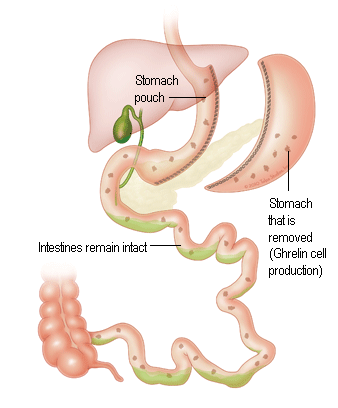
2. Mini Gastric Bypass: This procedure entails the creation of a small stomach pouch.
The surgical procedure is meant to transform how your body digests food. In order to regulate the food intake, the surgeon bypasses the small intestine.
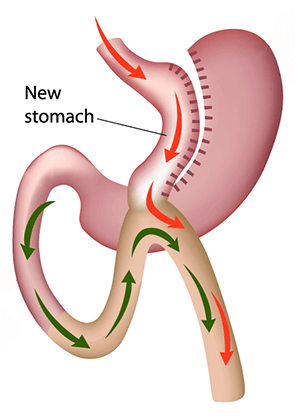
3. Roux-en-Y Gastric Bypass: This minimally invasive procedure uses a combination of restrictive and malabsorptive techniques to achieve a successful weight loss outcome. Staples are used to create a smaller stomach to limit the amount of food intake, and a large portion of the small intestine is bypassed to limit the nutrients and calories absorbed.
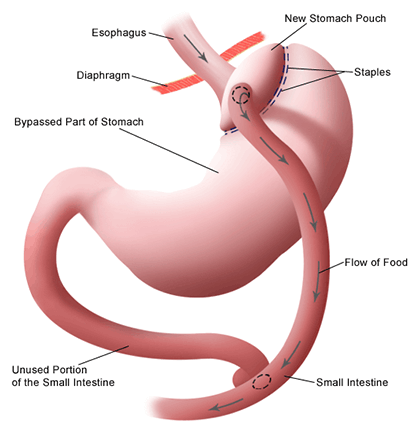
4. Duodenal-Jejunal Bypass: This surgical procedure combines a sleeve gastrectomy with a bypass of the upper small intestine.
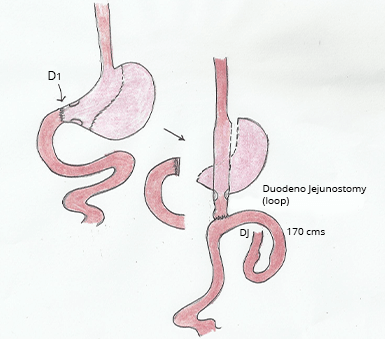
Now that you have an understanding of the types of weight loss surgeries, there’s a process that you need to comply with for an optimum experience.
To make ‘weight loss surgery in Delhi,’ a success, here’s an easy-to-follow, detailed ‘Steps to New You’ guide.
The dietician will understand your health and lifestyle conduct. She/He will conduct an assessment to analyze the body composition.
• Adhere to a liquid diet, one day prior to the surgery.
• Take the prescribed medications, as directed by the surgeon.
• If you use a CPAP machine, make sure to bring it to the hospital.
• Take a shower before arriving at the hospital.
• As you reach the hospital, provide the final go-ahead for the surgery.
• Seek a final clarification of the procedure before moving to the pre-operative area.
• Then, you’ll proceed to the operation theatre for the surgery.
• Upon surgery completion, you’ll be shifted to the post-operative area before transferring to the ICU.
Following bariatric and metabolic procedures, the rationale of nutritional care is two-fold:
• Adequate energy and nutrients support tissue healing and preserve lean body mass during rapid weight loss.
• The foods and beverages consumed post-surgery should minimize reflux, promote early satiety, and limit the dumping syndrome while maximizing weight loss.
Dr. Atul N.C. Peters, Senior Director and Head of the Department (Bariatric, Minimal Access, and Robotic Surgery Dept., Max Hospital, Saket, Delhi), is renowned for his expertise in performing successful bariatric and metabolic surgeries over the past two decades.
He has further established the department as a Centre of Excellence (CoE). With serious contribution and dedicated care towards patients, he has emerged as an international practitioner, thereby being acclaimed as a 'Surgeon of Excellence' by the Surgical Review Corporation.
Dr. Atul Peters is considered to do the best ‘weight loss surgery in Delhi’. Apart from that, his skills are further exhibited through his record of doing the most number of surgeries in a day. He trains would-be surgeons and remains an important figure for various developments taking place in the field.
Mahesh Bhutani, a businessman from Delhi, faced acute obesity problems. His whopping weight was 220 kg and had a BMI of 94; his health worsening day by day and was facing critical conditions such as high blood pressure, sleep apnea, and joint pains.
Hopeless, Bhutani approached Dr. Peters for help in 2012, considering ‘weight loss surgery in Delhi’ as an option. Dr. Atul Peters and Bhutani, both, decided that the best option was weight loss surgery after reviewing all that could be done. This surgery was a success, and Bhutani started on this new journey to reclaim health.
Mahesh has been keeping himself at a healthy weight since the procedure, and he's ever so grateful for the experience. He is one in a thousand because his progress inspires many others who may be suffering from being obese and can see that weight loss of this magnitude is definitely possible with the right backing and proper medical intervention.
Bariatric surgery, at this point, is one of the most promising alternatives for obese people.
People who have undergone bariatric surgery must comply with the diet and lifestyle modifications, suggested by their surgeon and the team. Like in any surgery, non-compliance with dietary and lifestyle recommendations can raise the likelihood of complications such as blood clotting, nutrient deficiency, and chronic diseases.
Individuals might overcome some risks that involve leakage, bleeding, or infection at the site where the surgery was conducted. Those who had a history of smoking or were on NSAIDs (Nonsteroidal Anti-Inflammatory Drugs) had a much higher risk of developing ulcers.
However, most of these risks can be minimized if patients follow post-surgery care, including dietary guidelines and lifestyle changes recommended by their doctor.
It depends on the particular process, experience of a surgeon, facility of a hospital, and other add-on services. What basically forms the cost is elaborated as follows:
• Surgery charges: These cover surgeon charges, operating theatre charges, and the cost of anesthesia.
• Pre-admission tests: The cost incurred in the pre-admission tests, like the blood test, X-ray, and ECG normally follow the cost.
• Post-operative care: Cost incurred postoperatively, including drugs, follow-up visits, and any rehabilitation.
It is prudent to compare the expense of various treatments so that quotes from different surgeons and hospitals can be gathered and the right decision can be taken.
Many of the patients cannot afford to pay for the weight loss surgery in one single installment; however, there are also various financing and insurance options available in many hospitals.
• EMI schemes: There are EMI schemes almost everywhere in hospitals and clinics, whereby they spread the cost to be paid over various months or even years.
• Health insurance: Some of the health insurance plans may offer cover for weight loss surgery, and this of course only comes after a prescription by a doctor.
• Alternative funding sources: The patient who is unable to afford surgery has some alternative funding sources. Such sources include government grants, charity organizations, and internet-based options like crowdfunding.
The cost of the surgery varies highly: state, region, and even countrywide. ‘Weight loss surgery in Delhi’ will have a different economic breakdown and so will other areas.
Your health is your greatest wealth. While cost is a consideration, it should not overshadow the importance of prioritizing your well-being, especially when considering bariatric or other surgical procedures.
Remember to note the following for maximum utilization of your post-bariatric journey.
• The more consistent you become with exercising, the better you will look at not only your weight condition but also your body's overall health.
Make these changes in your diet to get the benefits from your bariatric surgery and avoid complications
• Diet in Beginning: Post-bariatric surgery, one must start with a clear liquid diet, then full liquids for the first 15 days, after that, a pureed diet for the next 2 weeks, then gradually shift to a soft to normal diet – that involves minimal chewing.
• Once on a normal diet, prioritize protein intake in all meals.
• Sugar and Spirits: This will help to avoid dumping syndrome and also promote weight loss.
• Straw and Soda: These are colloquially called bloat buddies because of the belching and discomfort they cause to the lower abdomen.
• Smoking: Prohibited to prevent anastomotic ulceration post-surgery
• Regulated Meals and Snacks: Consume three small meals and two small snacks every day.
• Chew Fully: Chewing into liquid consistency before swallowing while eating slowly.
• Protein Priority: Consume the protein first at each meal to increase intake.
• Liquid Avoidance: Avoid drinking liquids 30 minutes before and after meals.
• Portion Control: Ensure that your portions are small in order not to eat too much.
• Listen to Your Body: Learn to listen to your body's hunger and fullness cues.
Dr. Yogesh Gautam is an experienced surgeon with over 25 years in the field. He is also an Associate Director and Advisor at the Department of Bariatric, Minimal Access & Robotic Surgery. He graduated in 1978 from Delhi University and completed his master's degree in surgery. Dr. Gautam is also a Diplomate of the National Board of Surgery, which he earned in 1983.
He has, during his career, trained over 100 surgical students. Dr. Gautam is an Indian pioneer in Minimal Access Surgery. He has been a sought-after speaker and participant in various teaching programs. He also worked in other major hospitals in Delhi like Sir Ganga Ram Hospital, Batra Hospital, and Max Hospital.
Dr. Gautam contributed to the establishment of the Department of General and Laparoscopic Surgery at Kolmet Hospital during his leadership of the academic work there. His skills go beyond surgery as he has also done an MBA in Healthcare from FMS, Delhi.
Dr. Atul Wadhwa is an accomplished Bariatric, Minimal Access, and Robotic surgeon. Dr. Wadhwa has done his postgraduate master’s in surgery from the University of Rajasthan in the year 1999. He has worked as a Registrar in Safdarjung Hospital.
To expand his knowledge, Dr. Wadhwa did his Fellowship from Padmashree Dr. P.K. Chowbey under Sir Ganga Ram Hospital in Minimal Access Surgery. His special area of interest is advanced laparoscopic surgery. He has been trained by the most distinguished Prof. Alferd Cuscheri Dundee (UK) in Upper GI Laparoscopic Surgery.
Dr. Wadhwa has published several papers in international and national journals and has been rewarded with the Best Paper Award. His work has also been included in various chapters on Minimal Access Surgery. Dr. Wadhwa is an invited speaker at national conferences and an active participant in national and international associations of laparoscopic and endoscopic surgery.
Dr. Atul is interested in all fields of abdominal surgeries with a special focus on minimally invasive procedures involving the liver and bile duct, colon, rectum, and stomach, and also with regard to weight loss procedures. He is a member of the robotic surgery team and is trained in the da Vinci robotic system.
At present, he is serving as a principal consultant in the Department of Bariatric, Minimal Access & Robotic Surgery.
Dr. Shalabh Agarwal is an experienced consultant in Bariatric, Minimal Access, and Robotic Surgery. Dr. Agarwal, who specializes in General and Laparoscopic surgeries, trained at Hindu Rao Hospital, after completing his MBBS from Kirori Mal College, Delhi University, after which he developed a special interest in minimally invasive surgery.
He has pursued additional specialized education here as well as overseas, which includes his Fellowship in Bariatric & Metabolic Surgery. He has gained extensive expertise with the experience of assisting in more than 1000 bariatric surgeries. He was awarded by Fellowship of the International Bariatric Club after he completed their advanced Bariatric Surgery course successfully.
Apart from his surgical skills, he is also a provider of ACLS/BLS certified by the American Heart Association, talking much about how he diligently takes care of the safety concerns of his patients. His clinical outcomes monitoring and the surgical audits on his résumé show his dedication to data-driven healthcare.
Dr. Agarwal is very well qualified as he has completed his Fellowship in Hernia Surgery, FALS. Along with this, he has also undergone postgraduate training in Minimal Invasive Proctology from IMAST, Mumbai. His experience in robotic surgery as he is trained in Da Vinci's Robotic System makes him a bright personality in the field.
Dr. Saurabh Goswami is a seasoned consultant in the Department of Bariatric, Minimal Access, and Robotic Surgery. She began with an MBBS from DYPMC, Pune, followed by a master's in general surgery from BVP, Pune. Dr. Goswami has furthered her expertise through prestigious fellowships such as F.MAS, FALS, and FIAGES.
She is also certified by the American Heart Institute as an ACLS/BLS provider. Dr. Goswami has held significant positions at renowned medical institutions, including PGIMSR ESI Hospital, Basaidarapur, and Max Smart Super Speciality, Saket. Her areas of interest encompass laparoscopic and advanced abdominal surgery, and breast, and colorectal surgeries.
A member of the robotic surgery team, trained in the Da Vinci Robotic System, Dr. Goswami is caring towards patients and is a very skilled surgeon. Her expertise combined with her compassionate approach towards patient care has made her a sincere favorite and respected figure amongst her patients. In addition to attending to general surgical needs, she runs special clinics for women related specifically to surgical needs, thereby creating personalized care and support for them.
She is a chief dietician for the Department of Bariatric, Minimal Access, and Robotic Surgery. Dr. Arora is a Ph.D. holder in Food and Nutrition from the University of Delhi and conducted her research work on the critical role of nutrition in the success of bariatric surgery.
Boasting an experience of over two decades, Dr. Beena is associated with reputed hospitals and academia. As the Chief Dietician, Dr. Arora plays a major role in pre-operative nutritional assessments and post-operative nutritional care of bariatric patients. She is the driving force behind the bariatric nutritional program and organizes bariatric support groups for patients- providing them with much-needed guidance and emotional support.
Apart from her clinical responsibilities, she leads the "Think Fit" non-surgical weight loss program and specializes in the nutritional care of patients undergoing intra-gastric ballooning.
In addition to clinical work, Dr. Arora is an avid teacher with knowledge through social media and blogging. She has also been a faculty member of the CICO Program conducted by OSSI and IFSO. She is a lifetime member of several professional organizations, viz. IDA, OSSI, ADE, IAPEN, among others.
Ms. Nalini Massey is one the most valuable asset of the Department of Bariatric, Minimal Access & Robotic Surgery and has acted as Program Manager for more than 14 years. Being one of the main contact persons for all patients she has been behind the mantle of organizing a wide array of workshops, CMEs, and many other events related to marketing and academics.
The responsibilities include liaising with departments like the operating theater, admission, finance, operations, and inpatient personnel for the smooth running of the institute and proper scheduling of patients.
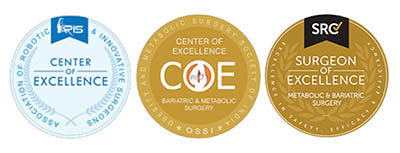
Ready to see how we can help you achieve your goals?
Schedule a free consultation or assessment today.
Call us at 099100 48755
Email us at info@atulpeters.com